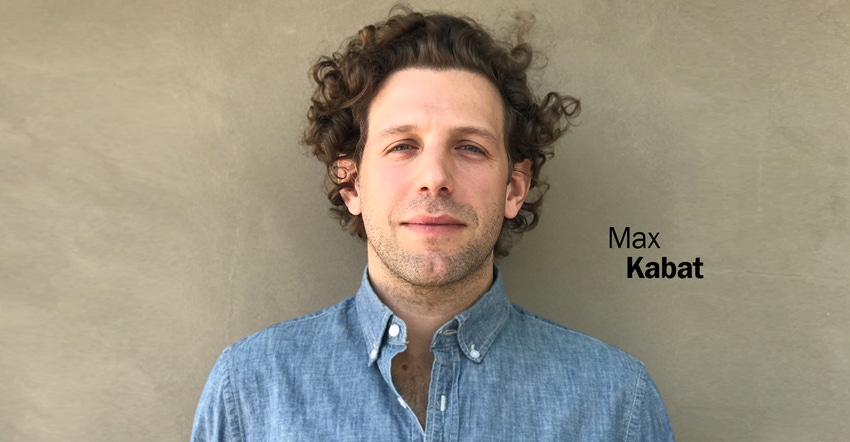How to explain CBD to consumers
CBD products are popular, efficacious, ubiquitous and–above all–confusing to consumers in terms of their legality and usage. Here are the questions you should expect to answer, as well as guidelines to crafting a helpful response.

To: Hemp-Based Brands, CBD ones, and others thinking of joining the Gold Rush
From: Max Kabat, Co-Founder/Growth Strategist, goodDog
Subject: If You Lead, The Consumer Will Follow
Memo: We live in perplexing times, for reasons big and small. So nothing sounds better than the availability of an all-natural, almost-totally-legal cure-all. That’s how CBD is being positioned right now, and it sure sounds good. But the truth is that most people don’t know the difference between THC or CBD, or whether CBD has THC. Is CBD a daily tonic for general health and vitality, or should it be used to relieve joint pain and other maladies? Can anyone help explain the difference between product for humans versus dogs? What happens if you try to take it on a plane? What do they mean by dosage? What does full-spectrum mean? Is there a difference between an oil or a cream? What’s the correct ratio of THC to CBD?
Consumers are confused–and they have every right to be. Internet sharks are hiding behind quickly-assembled Amazon storefronts with little to no explanation of the product while also being long on claims. Some retailers have pulled their CBD products off the shelves in fear of FDA/state/federal crackdowns, while others desperately search for a supply to private label products. The industry has spent so much more time getting products to market with pretty packaging than actually thinking about the consumer's needs and questions. There’s lots of interest in this space but a marked lack of answers. It’s time for one of these companies to step up and be a clear, trustworthy voice, to become a leader that acts on behalf of the consumer rather than the industry.
Because of January’s New Year, New You mania, now is a good time to hit refresh and lay out a plan. So, if I were the face of a CBD business, I’d take some lessons from other categories that demystified their mystical products well. GT Dave and kombucha is a good start. Or adaptogen proponent Amanda Chantal Bacon. Voices that loudly, clearly and simply proclaim the benefits and characteristics of their wares. Maybe take a look at what has continued to be so elusive about pre- and probiotics.
Here’s where I’d start to pull back the veil:
Efficacy. CBD sounds pretty much like taking a magic pill right now. Have a stomach ache, anxiety, eczema, or foggy brain? Apparently, CBD’s here to save you. But what is it supposed to actually do for me? Tell us: Why should I trust your brand versus someone else’s? Is there a difference if I take it in pill form or if I eat some macaroon-looking snack that’s dusted with it? There are a ton of competing brands and messages with no single narrative about the whys and the hows of hemp or marijuana. If you’re assuming someone else will do the job for you, then you might not be around for very long.
Legality. Brands aren’t out of the woods yet as speculation continues regarding what the FDA will and won’t do. Every lawyer has a different answer about what’s legal and where that legality applies. That said, the recent ruling about hemp should make it easier for companies selling hemp-based products to go about business as usual—from traditional banking to using outbound marketing tactics. Great, but that comes with its own set of complications, too. History repeats itself, so studying up on what happened post-alcohol prohibition in the States and across the world might give you insight into what’s coming. Consumers want to know: Will the thing I buy legally today for a bunch of money get me arrested by the TSA tomorrow? Make some content about it. Tell us a story.
Product Origin. Consumers–especially the sort of early-adopter consumers that are curious about THC and CBD–care about where the things they ingest come from, how they’re made and by whom. Tell us: Is your stuff grown in a field or in some grow house? Is there one central lab that makes all the plants into oil or does each brand have their own manufacturing? Is yours better? If so, why? With a lack of current oversight, what does that mean for what I’m going to ingest? Is anyone watching? If this stuff is so powerful, how do I know it’s safe? Can I trust you?
Continuity. Discerning consumers will question everything, and they’re usually your most powerful brand advocates if you can win them over. So if you’re a brand just looking to ride the wave of CBD by adding it to your product portfolio without any real reason for it to be there, don’t. In the same way that not everything needs protein — fortified or otherwise—not everything needs to be labeled +CBD. While there might be short term gain in this gold rush if you add it to a couple of your drink SKUs, eventually consumers are going to figure out that it all doesn’t make sense and you’ll be left with some negative consumer sentiment. Stand in the consumer’s shoes. Are you inserting it into your product portfolio to chase trends or is it a meaningful part of your brand story? Make it obvious which players are legit by being legit yourself. And if you’re a new company being approached by a Big Brand looking to invest or partner in CBD without the risk, be careful. Will the consumer view you as more legit, or does this early consumer want to stay away from anything associated with a Big Brand?
Retail Channel. Be thoughtful about where you peddle your wares–in a MedMen, an owned digital or bricks and mortar storefront or through Amazon. Winning at CBD won’t be a traditional battle of shelf space from bodegas or big box retailers; rather, it’s going to likely be about a bunch of things done simultaneously. Scale on Amazon, presence on owned e-commerce with a smaller barrier to entry and shorter path from click to your front door, and maybe some bricks-and-mortar for brand recognition and storytelling. Don’t be like the brands just taking the easy road, slapping up a storefront, pumping some money into it getting their sponsored search to come up first. That’s opportunism without belief. Consumers will eventually smell it. What can you do to show that you’re not a Johnny Come Lately looking to make a buck? Think about where you show up, and what that says to your consumer. How can the consumer view you as more of a brand rather than just the product that popped up first on a search?
Segment. All of your competitors are pursuing the young ones, but who’s looking at the rest? Most Baby Boomer antidotes come in pill form, are marketed by Big Pharma, and are prescribed by doctors. Lipitor. Ambien. The works. Yes, they are an aging population. Yes, it’s not as sexy as marketing to Millennials. But they are super low hanging fruit because they’re already trying to cure what ails them. Why not help them understand how CBD can play a role in their lives? They have the disposable income to do more than just dabble. They aren’t all ex-hippies, but they like stories and they, too, want to live full lives. Everyone is zigging. Try zagging.
We’re watching an industry unfold in front of our very eyes, and it’s currently wide open for business owners to get out and become the leader that demystifies it all. If you do it right, you’ll be the one that all the others follow into the Promised Land. Do it for the consumers.
Max Kabat is the co-founder of goodDog, which focuses on helping companies move from product to brand by driving mainstream, conscious consumer growth through meaning.
About the Author(s)
You May Also Like




